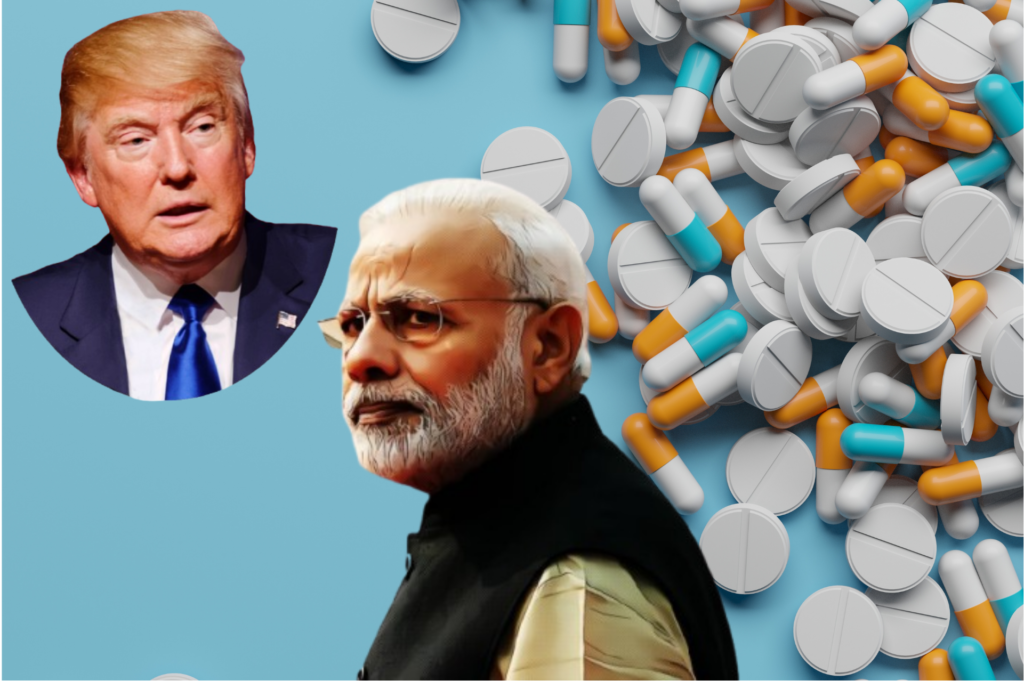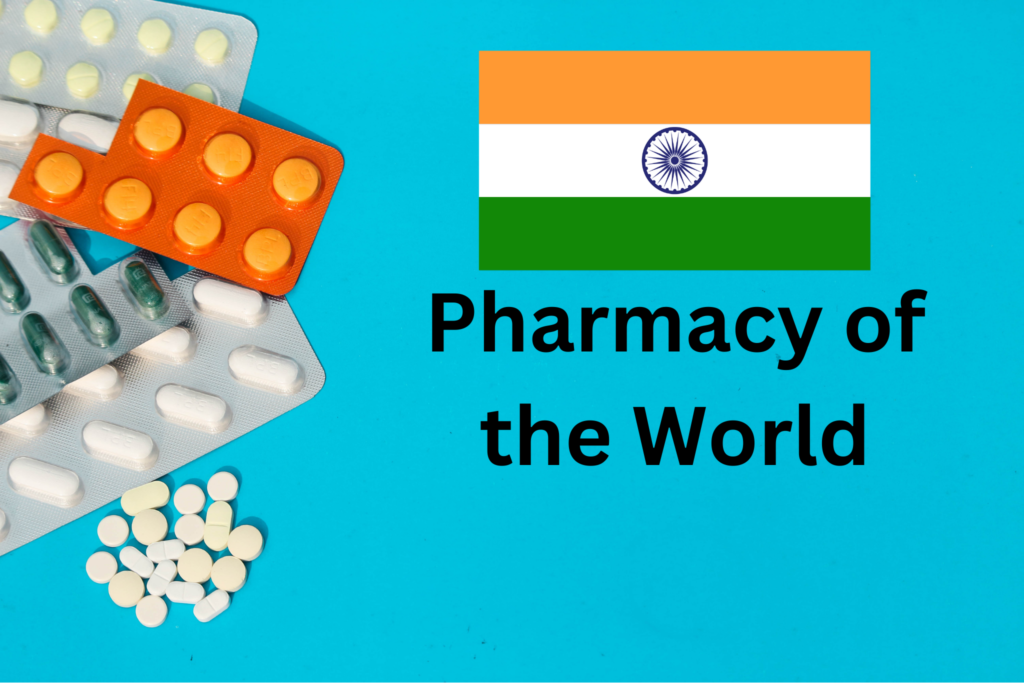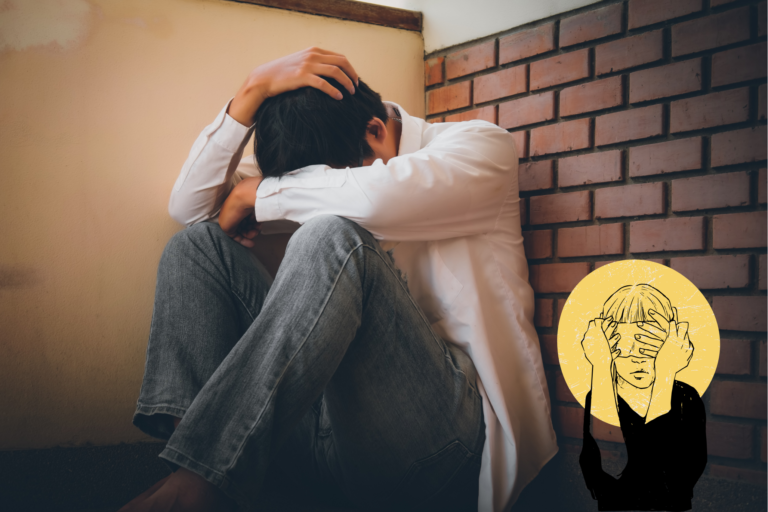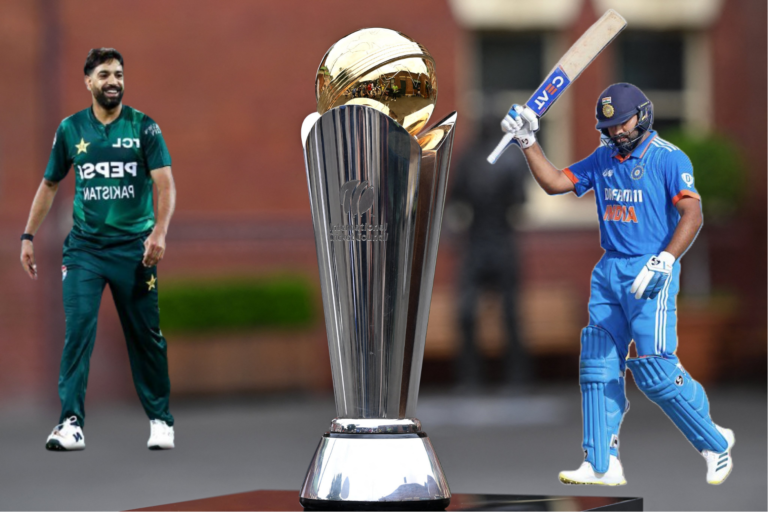
US tariff on Indian Pharma- According to government data, the US is the largest market for Indian pharmaceutical companies. India, known as the ‘pharmacy of the world,’ manufactures affordable generic alternatives to complex innovative drugs and exports them to over 200 countries.
India’s pharmaceutical sector is optimistic that bilateral negotiations between New Delhi and Washington may help prevent a crisis triggered by the U.S. President Donald Trump’s broad tariffs on drug imports.
Government data indicates that the U.S. is the largest market for Indian pharmaceutical companies. India, often referred to as the ‘pharmacy of the world,’ manufactures cost-effective generic alternatives to complex innovative drugs and exports them to over 200 countries.
In the fiscal year 2024, exports to the U.S. amounted to $8.7 billion, representing approximately 31% of total pharmaceutical exports, according to data from the government-backed trade body Pharmexcil. Trump’s tariff hike threats caused Indian pharmaceutical stocks to decline on Wednesday.
Sudarshan Jain, secretary general of the Indian Pharmaceutical Alliance (IPA), stated that the tariff issue would be addressed through bilateral discussions between India and the U.S., with further actions determined accordingly.
He expressed confidence that ongoing dialogue among stakeholders would help resolve the matter.
In 2022, Indian pharmaceutical companies supplied nearly half of the generic medicines prescribed in the U.S., saving the American healthcare system approximately $408 billion and highlighting India’s crucial role in providing affordable, high-quality medications.
Vishal Manchanda, an analyst at Systematix Institutional Equities, warned that the tariff move could drive inflation in the U.S., as the country lacks the necessary manufacturing infrastructure to match India’s scale of pharmaceutical production.

The Indian Pharmaceutical Alliance (IPA) represents several of India’s leading pharmaceutical companies, including Sun Pharmaceutical, Dr. Reddy’s, Cipla, and Zydus Lifesciences, along with the Indian subsidiaries of U.S. firms like Abbott.
Earlier this week, Sun Pharma Managing Director Dilip Shanghvi stated in local media that if the tariffs are implemented, the cost will ultimately be passed on to consumers.
Reciprocal tariff- US tariff on Indian Pharma Export
Pharmexcil stated on Wednesday that if the U.S. decides to impose reciprocal tariffs on Indian pharmaceutical exports, the primary impact would be felt by American consumers, though the domestic industry remains cautiously optimistic.
Raja Bhanu, Director General of the Pharmaceuticals Export Promotion Council of India (Pharmexcil), noted that India exports goods worth over $8 billion to the U.S. annually.
We do not anticipate any immediate impact. However, if the tariffs are imposed, it will primarily affect American consumers,” Bhanu stated. “We are in a wait-and-watch mode, as our exports to the U.S. mainly consist of generic drugs.
Referring to U.S. studies, he stated that medicines from Indian pharmaceutical companies saved the U.S. healthcare system $219 billion in 2022 and a total of $1.3 trillion between 2013 and 2022. Additionally, Indian generics are projected to contribute another $1.3 trillion in savings over the next five years.
President Trump on US tariff on Indian Pharma-
U.S. President Donald Trump stated that he had explicitly informed Prime Minister Narendra Modi that India would not be exempt from Washington’s reciprocal tariffs, asserting that “nobody can argue with me” on tariff policies.
On February 13, just hours before Modi’s bilateral meeting with Trump at the White House, the U.S. President officially announced the implementation of reciprocal tariffs.
During Modi’s visit to the U.S., when asked about the tariffs on India, Trump remarked that India was among the most heavily tariffed nations in the world.
He acknowledged India’s firm stance on tariffs, stating that while he did not necessarily fault them for it, their approach to trade was different. He added that selling to India was challenging due to its trade barriers and high tariffs.
In his first term as president, Trump referred to India as a “tariff king” and, in May 2019, revoked India’s preferential market access under the Generalized System of Preferences (GSP), arguing that India had not provided fair and reasonable access to U.S. markets.
You can also read.
China Discover New Coronavirus Similar to Covid-19
You can follow us on social media platforms.




1 thought on “Indian Pharma Industries hoping from the PM Modi to prevent a tariff crisis triggered by Trump.”